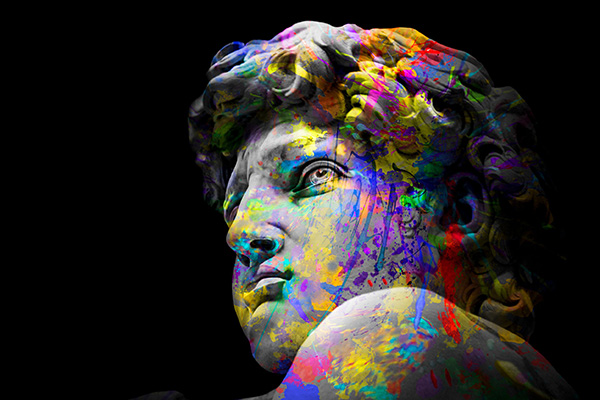spiritual journey
Free Yourself From Karmic Debt This Year
 With the start of a new year, many of us are eager to set new financial goals and improve our overall financial situation. For those struggling with debt, the new year can be a great time to take control of your finances and make a plan to get out of debt.
With the start of a new year, many of us are eager to set new financial goals and improve our overall financial situation. For those struggling with debt, the new year can be a great time to take control of your finances and make a plan to get out of debt.
But there is more to our life journey than financial debt. There is also the much more important soul debt known as our karma. A debt that for some of us may require much more urgent attention.
Karmic debt is the result of all the negative actions we take in this life, and in past lives, that have consequences beyond our present existence. If we accumulate bad karma through actions that cause harm to others or ourselves, we will experience negative consequences in this life, or in a future life. These karmic consequences will in time manifest as difficulties, challenges, obstacles and sufering in our lives. Similarly, if we accumulate good karma through deeds that benefit others, we will experience positive consequences such as abundance, happiness, health, and success.
If you feel persistently stuck in some kind of negative cycle, burdened by what feels like repeated bad luck, hard times, or difficult relationships, karmic debt is most likely playing a role. Breaking these patterns requires that you take responsibility for your misdeeds or inappropriate actions in the past.
The Universe Always Has The Better Plan
 Our journey through life is constantly changing. Whatever circumstances you find yourself in today is temporary. In time it will change. It may not change overnight, or within weeks, months, or even years, but it will change eventually. For change is the only constant in our co-created existence.
Our journey through life is constantly changing. Whatever circumstances you find yourself in today is temporary. In time it will change. It may not change overnight, or within weeks, months, or even years, but it will change eventually. For change is the only constant in our co-created existence.
Since change is inevitable, it makes sense to embrace these energies of ongoing evolution, expansion and transformation. It really makes no sense to live in constant resistance to the universal flow, for it is a tragic waste of our creative energy as co-creators and detrimental to our soul purpose and karmic growth.
Living a conscious life in harmony with the cycles of life and in sync with the creative pulse of the universe is one of the most empowering and karmically liberating things we can do for ourselves in this lifetime.
While many of us tend to think we have the best plan for our life and that we know exactly what is best for us, we often do not really understand what will best serve our highest good. But God, Source, Spirit, the Divine, always knows what is best for us, and sometimes it is not what we originally had in mind.
We have to admit to ourselves that we tend to have a biased way of wanting things to work out, and that sometimes it may not be in the best interest of all parties involved, or even ourselves, on a soul level.
The Constant Battle Of Head Versus Heart
 Have you ever second-guessed yourself, done or said something that went against your gut, only to realize in retrospect that your initial feeling or hunch was right? Had you acted differently, it could have saved you a lot of heartache and loss, emotionally, physically or financially?
Have you ever second-guessed yourself, done or said something that went against your gut, only to realize in retrospect that your initial feeling or hunch was right? Had you acted differently, it could have saved you a lot of heartache and loss, emotionally, physically or financially?
If you have ever been in this position, know that you are not alone. The “head versus heart” dilemma can be very confusing and frustrating. Many of my clients struggle with it and some experience a great deal of confusion, stress and emotional discomfort as a result.
When faced with difficult decisions or challenging situations, we usually have a good sense of what the best course of action might be. But then we tend to look for concrete evidence to support our feelings and intuitive hunches, and when we cannot find any, which is often the case, our heads take precedence over our hearts. So we end up discounting our feelings and intuitions, usually to our own detriment.
The struggle between head and heart is a common theme in philosophy, literature, art, and popular culture, as we all regularly experience inner conflicts between reason and emotion, logic and intuition, responsibility and passion.
Our Choices Are Ours To Make
 The past few years have been challenging for everyone. The pandemic, political upheaval, and economic uncertainty have affected lives all over the world.
The past few years have been challenging for everyone. The pandemic, political upheaval, and economic uncertainty have affected lives all over the world.
I have personally witnessed the pain and struggles of many people close to me, as well as my clients.
I even had to take a ‘mental vacation’ at times as I began to feel disoriented and somewhat confused by the messages the angels were giving me.
I asked the why’s with no clear answers. I’ve asked the how’s without sensible explanations. As a lightworker I tend to feel compelled to fix things, to make things better.
Then one day I had a breakthrough when spirit told me clearly that it is not my job to fix everything and everyone.
Spirit has led me to understand that my job is to spread love, light and healing to the best of my ability. How people choose to think, feel and act in response to their life challenges is not for me or anyone else to try to control. Everyone’s choices are theirs to make as they see fit, and with much choice comes much responsibility.
As heartbreaking and frustrating as it may be at times, it is not my place to interfere with other people’s karmic journey and soul plan. This newfound insight was jarringly confirmed by a traumatic event just a few weeks ago.
Embracing Art As A Spiritual Resource
 Art, in its many forms, continues to be a wonderful source of inspiration for my personal and spiritual growth journey. Art has the power to evoke emotion and connect us to feelings and something beyond the immediate boundaries of our lives.
Art, in its many forms, continues to be a wonderful source of inspiration for my personal and spiritual growth journey. Art has the power to evoke emotion and connect us to feelings and something beyond the immediate boundaries of our lives.
Whether it is a source of divine inspiration or an expression of spiritual wisdom, art has the potential to infuse our lives with beauty and eternal wisdom. Art is a profound spiritual resource.
The deep connection between Renaissance art and spirituality has not only shaped my own artistic and spiritual journey, but has resonated deeply with countless others throughout history.
The Renaissance, which spanned the 14th through the 17th centuries, was a time marked by a thirst for knowledge and exploration. Artists, scholars, and scientists sought to understand and communicate the mysteries of the world and our place in it. As a result, art emerged as a powerful vehicle for expressing and exploring spiritual themes.
Renaissance artists, often working under the patronage of religious institutions, were masters and storytellers of symbolism. Their works, rich with hidden meanings, served as visual representations of faith and devotion. Their artistic masterpieces, including paintings, tapestries, and sculptures, became integral to devotional practices during this period.
Spiritual Growth Without Judgment Or Guilt
 I recently had a nasty fight with my ex-husband that was definitely not in line with the spiritual values and principles I teach my clients. Afterwards, I felt very defeated and disappointed in myself for not practicing what I preach.
I recently had a nasty fight with my ex-husband that was definitely not in line with the spiritual values and principles I teach my clients. Afterwards, I felt very defeated and disappointed in myself for not practicing what I preach.
But then Spirit whispered in my ear.
“It’s okay not to be perfect all the time. Sometimes you need to let the toxic air out of your human ego balloon.”
Upon further reflection, I was reminded that we are all spirit beings in human form, which automatically means we are limited and fallible. No one is perfect in this world.
After all, we have signed up for a very challenging physical adventure in this lifetime, which means we all have problems from time to time and we all make mistakes. That is how we learn and grow. In fact, one of the least spiritual things we can do is pretend we’re perfect.
Sometimes we need to let off steam by releasing pent-up negative energies that tend to build up in our auras as we navigate the ups and downs and many frustrations of our daily human existence. Yes, indeed, there are times when we need to go ahead and just beat the heck out of our ego piñata to get rid of some bad juju! When we release these unwanted energies, we detoxify our energy field to live a more abundant and fulfilling life.
The Exit Points In Our Soul Plan
 I believe that we have access to several ‘exit points’ throughout our lives. These are moments when our spirit or soul can separate from its physical form to return to the non-physical. It is said that we are given a few such exit points in our lifetime.
I believe that we have access to several ‘exit points’ throughout our lives. These are moments when our spirit or soul can separate from its physical form to return to the non-physical. It is said that we are given a few such exit points in our lifetime.
Planet Earth is not our primary home. I like to think of our physical existence in this world as a challenging ‘schoolroom’. This physical life journey can be very difficult at times, and I find that it makes things a little easier if we can look at it from this perspective.
I have yet to meet a person who has had a complete fairytale existence in their life. We have all had some magical moments, but not necessarily as magical as some far-fetched novels or films might portray. Sometimes we feel like we’re banging our heads against the wall just to survive on a daily basis, physically, financially or emotionally, but deep down we all have a built-in survival instinct to stay and complete what we incarnated to do.
Exit points are moments when we have the free will choice to stay in this physical world or return to the non-physical. These moments of choice can be a major health emergency, a near fatal accident, a traumatic event in which we are exposed to extreme danger, and so on. It is usually one of those profound life experiences that make us feel very lucky to still be alive!